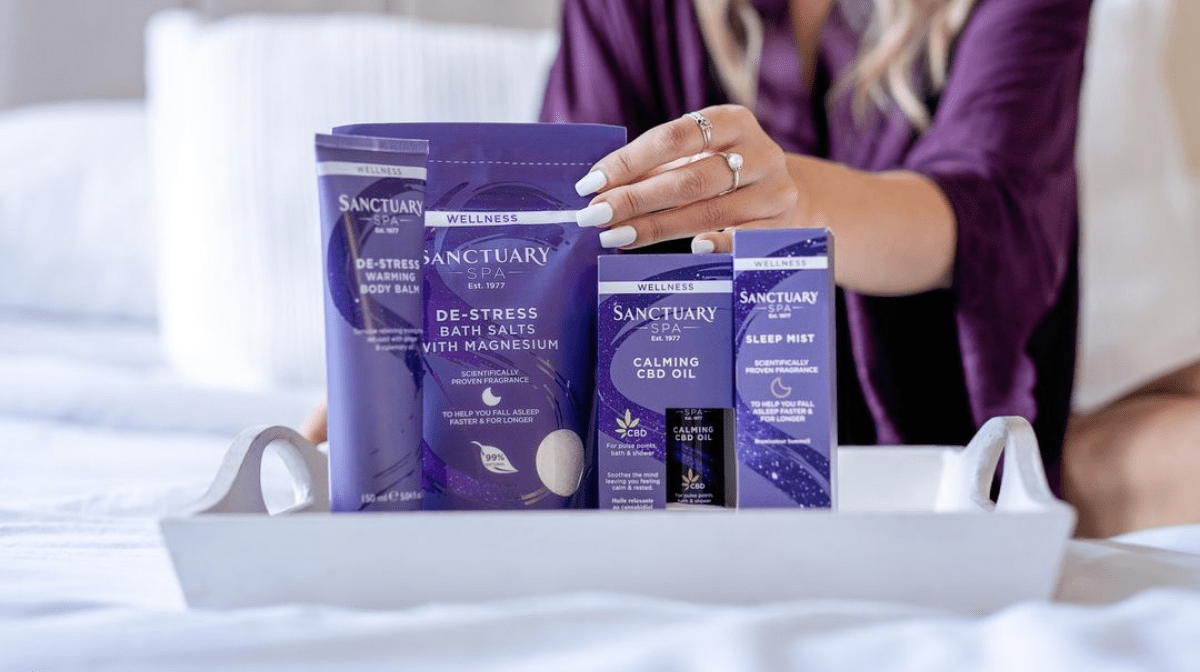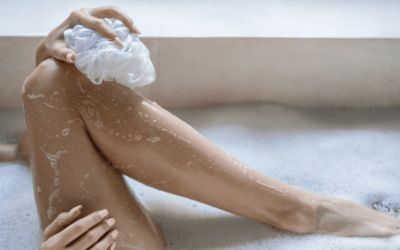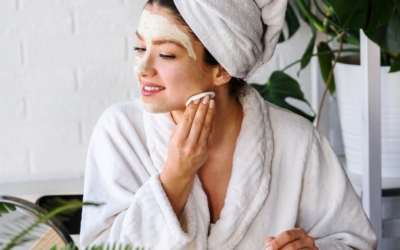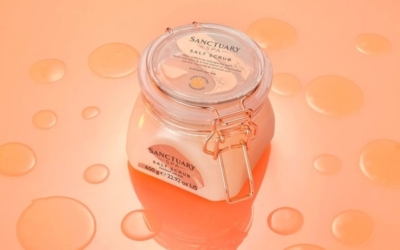If you’ve ever suffered from poor sleep, you’ll know how much it can affect your mood, productivity and general wellbeing. We spend about a third of our lives asleep, so it’s not surprising that poor quality shuteye can have some pretty damaging effects on our health. Sleep promotes better mental wellbeing, boosts immunity and reduces the risk of developing diabetes and heart disease. When it comes to learning how to sleep better, establishing a consistent bedtime routine and making use of relaxing products like a soothing pillow spray or CBD oil is essential.
How To Sleep Better
Here are our top sleep tips to leave you feeling rested, refreshed and ready for the day.
Choose your bedtime and stick to it
We’re all creatures of habit – especially when it comes to maintaining good sleep hygiene. A key step in the quest for better sleep is to make sure that you’re going to bed and getting up at the same time each day. It’s impossible for your body to adapt to a regular sleep routine if you keep switching up your bedtime.
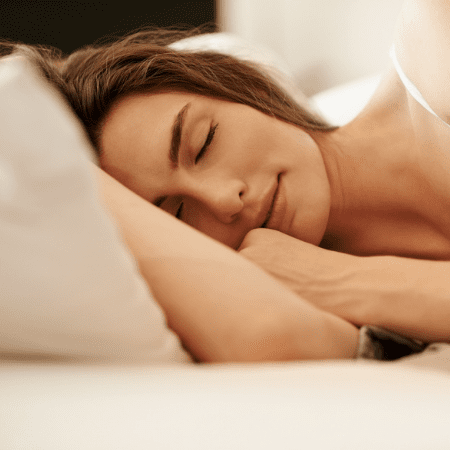
Sticking to the same sleeping times will also ensure that you’re getting enough hours of shuteye. If you’re sat there wondering ‘how much sleep do I need?’, aim for 7 to 9 hours a night. As your body adapts to your regular sleeping hours, you’ll find that it becomes like clockwork, making it much easier to drift off.
Create a bedtime routine to help you unwind
The secret to a good night’s sleep lies in the preparation! Regardless of whether you’re tucked up in bed by 9pm, if you’re rushing around, switching between your phone and laptop, right up until you hop beneath the covers, the chances of you getting a restful sleep are very slim. We recommend spending at least 30 minutes winding down before bed. This means no phone, bright lights or stressful distractions.
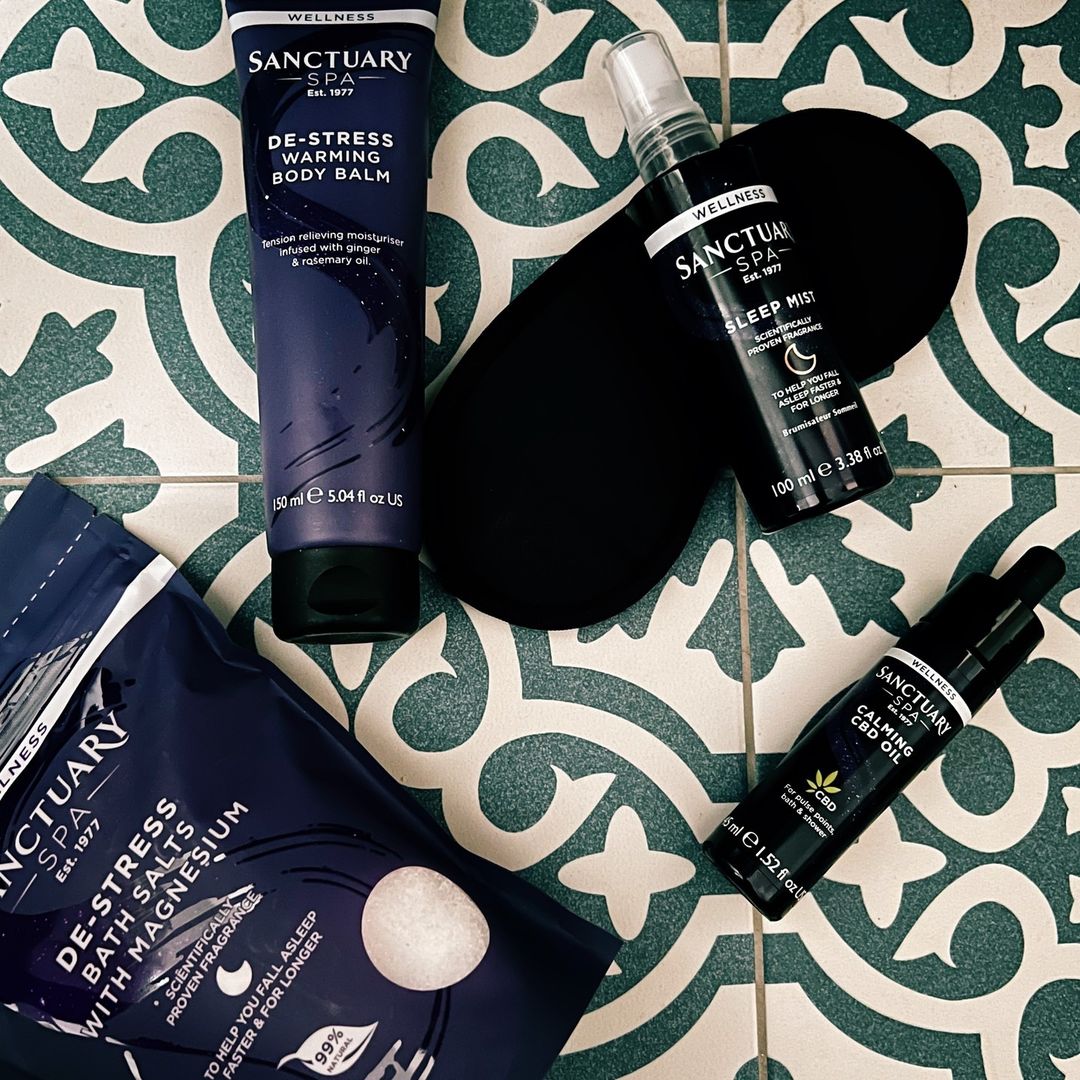
If you want to know how to get into a good sleep routine, give the following a go:
- A warm bath before bed helps to reduce blood pressure, alleviates anxiety and induces a lower body temperature, telling your body that it’s time for sleep. For the ultimate relaxation, add a handful of our Magnesium-enriched De-Stress Bath Salts and a few drops of CBD Oil to the tub, lie back and relax.
- Switch your late-night email checking for a book. Even 15 minutes of reading before bed will help you to forget the stresses of the day. Doing so regularly will teach your brain to see reading as a trigger for sleep. There’s a reason why we read bedtime stories to children!
- Dim the lights and perform soothing rituals to help you unwind. This could include anything from low-impact stretching and massaging tired muscles with our Warming Body Balm to listening to a podcast while you spritz your face and pillow with a calming Sleep Mist. Try a few things out and see what works for you. The key here is distraction-free relaxation!
,
What you eat and drink before bed can affect your sleep hygiene
Have you ever noticed how badly you sleep after a few glasses of wine in the evening? What you eat and drink before bed can impact your digestion, keeping you awake or preventing the deep REM sleep that the body needs to repair.
If you regularly have a glass of wine (or two) with your evening meal, this could be causing your disrupted sleep. We’re not telling you to go teetotal, but when it comes to how to sleep better, limiting alcohol to weekends and special occasions can make all the difference.

Reducing your caffeine intake, and avoiding it completely after 3pm, is one of the more obvious tips for better sleep, but is still really important! Similarly, try to avoid sugary foods before bed and eating too late in the evening, as it can make it hard to fall asleep if your body is still focused on digesting food.
Get some exercise and limit daytime naps
When the afternoon lull hits, it’s all too tempting to lie down for half an hour. Unfortunately, your late afternoon nap habit may be causing you restless nights, so resist the temptation where possible. Napping during the day can throw your sleep routine off balance, making it harder to fall asleep when you really need to!
Daily exercise of some form is beneficial for all areas of health, and your sleep hygiene is no exception. Whether it’s a quick walk round the block or a sweaty gym session, increased energy expenditure throughout the day can promote easier and deeper sleep.
Once you know how to sleep better by establishing a proper bedtime routine, the changes you notice in your energy levels, concentration and general wellbeing will be transformative. The key here is consistency, so find what works for you and stick with it!
